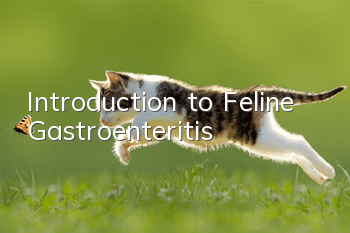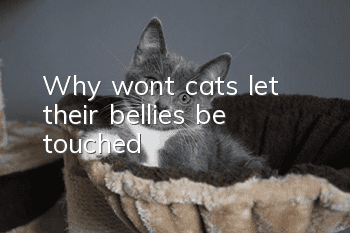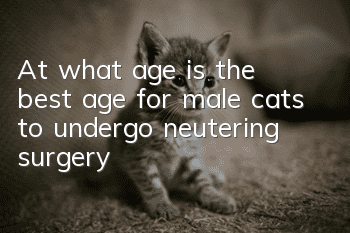Introduction to Feline Gastroenteritis

Introduction to Cat Gastroenteritis
Cats that eat unclean things or drink dirty water can cause acute gastritis. Pay special attention to late spring and early summer, when bacteria breed rapidly and food easily deteriorates. Be sure to change your cat's food in a timely manner. Gastroenteritis causes mild inflammation of the cat's gastric mucosa, first causing vomiting and then diarrhea. At the same time, the cat shows lack of energy and appetite, and when the diarrhea is severe, it may also cause dehydration symptoms.
Symptoms of cat gastroenteritis
1. Lack of energy, slight rise in body temperature, loss of appetite, vomiting and abdominal pain, abdominal contraction, and repeated abdominal review and other symptoms. Thirst is significantly worse, but vomiting occurs after drinking water.
2. It will cause vomiting, and the vomitus usually contains blood or gastric mucosal fragments. When a cat's abdomen is touched, the cat often refuses to be petted because of abdominal pain.
3. The main symptoms of diarrhea will appear, and the cat’s feces will contain sticky liquid and a fishy smell. At the same time, the color of cat feces is black or dark green, and sometimes it is mixed with blood or black blood clots.
4. Dehydration and acid-base balance disorder are likely to occur if the disease course is longer. When the condition becomes very serious, the cat will have convulsions all over the body, toxic dehydration and death.
- Why do cats always like to lick tape?
- How to choose a cat litter box
- Does the little kitten recognize its owner?
- The male cat’s tail secretes serious oil.
- What are the symptoms of British Shorthair before giving birth?
- How to choose the right shampoo for cats?
- What are the symptoms of cat poisoning?
- What should you pay attention to when taking your cat out?
- Cat thrombosis symptoms
- What to do if Chinchilla has acute gastroenteritis?



